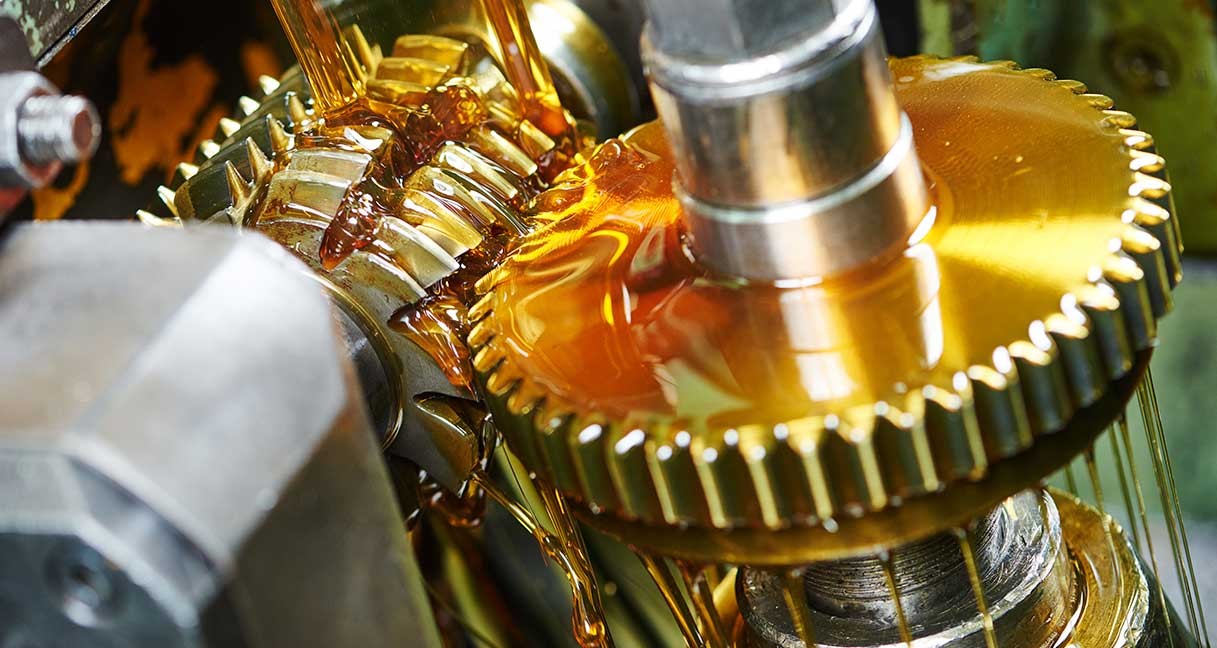Construction equipment operates under some of the most demanding conditions imaginable. Heavy loads, extreme temperatures, and constant movement all place tremendous stress on the machinery’s components. Among the critical factors that ensure these machines perform efficiently and last longer is the proper selection and use of Gear Oils. Using the right gear oils is not just a routine maintenance task; it’s a vital part of protecting your investment and optimizing your equipment’s operation.
At EVISCO, we understand the challenges construction professionals face, and selecting the ideal gear oils can be complex. This article will guide you through the essential considerations and expert advice for choosing the right gear oils tailored to your construction equipment’s needs.
Understanding the Role of Gear Oils in Construction Machinery
Gear oils are specialized lubricants designed specifically to protect the gears and transmission components in heavy machinery. Unlike regular engine oils, gear oils have unique additives and viscosity grades that help reduce friction, prevent wear, and resist extreme pressure conditions. In construction equipment, these oils are crucial for the smooth transfer of power and for preventing breakdowns caused by gear failure.
Because construction sites often involve harsh environments, including dust, dirt, moisture, and temperature extremes, the gear oils used must have properties that ensure durability and reliability. Selecting the wrong type of gear oil can lead to increased wear, overheating, corrosion, and ultimately costly repairs.
Key Factors to Consider When Choosing Gear Oils
Viscosity Grade
The viscosity grade of gear oil is a critical factor affecting lubrication performance. Viscosity measures how thick or thin the oil is at certain temperatures. In construction equipment, a gear oil that is too thin may fail to maintain a protective film on gears, leading to metal-to-metal contact and accelerated wear. Conversely, oil that is too thick may cause increased resistance, reducing efficiency and increasing fuel consumption.
Manufacturers often specify a recommended viscosity grade based on the equipment design and operating conditions. These grades are usually indicated by SAE numbers such as SAE 80W-90 or SAE 75W-140. It’s essential to follow these recommendations to ensure proper lubrication and equipment protection.
Additive Packages
Gear oils contain various additives that enhance their performance. Extreme Pressure (EP) additives are particularly important in construction equipment because gears often endure high loads and pressures. These additives create a protective layer on metal surfaces, reducing friction and preventing scuffing or pitting.
Anti-wear additives, corrosion inhibitors, and antioxidants are other critical components of gear oils. These additives work together to extend oil life, protect metal surfaces, and maintain oil stability in harsh environments. When selecting gear oils, it’s important to choose formulations that match the specific demands of your construction machinery.
Compatibility with Equipment Specifications
Every piece of construction equipment comes with manufacturer guidelines for lubricants, including gear oils. These specifications are based on rigorous testing and engineering requirements. Always consult your equipment’s owner manual or technical documentation to verify the required gear oil specifications such as API service classifications or OEM approvals.
Using gear oils that meet or exceed these specifications ensures that your equipment operates under optimal conditions and that warranties remain valid. Ignoring these standards can lead to suboptimal performance and may void manufacturer warranties.
Operating Environment and Conditions
Construction sites vary widely in their environmental conditions. Some equipment operates in extremely cold climates, while others endure intense heat or dusty, abrasive conditions. These factors should influence your choice of gear oils.
For example, in cold environments, gear oils with good low-temperature flow properties (low pour points) are essential to prevent thickening and ensure immediate lubrication upon startup. In contrast, high-temperature environments require oils with excellent thermal stability to resist breakdown and maintain protective qualities.
Understanding your equipment’s typical operating environment will help you select gear oils that perform consistently and protect your machinery throughout its working life.
Benefits of Using High-Quality Gear Oils
Investing in high-quality gear oils offers many advantages that directly impact your construction business’s bottom line. Proper lubrication reduces friction and wear, which extends the lifespan of gears and bearings, minimizing downtime and repair costs.
Additionally, premium gear oils often come with superior additive packages that provide enhanced protection against corrosion and contamination. This means fewer breakdowns and more reliable equipment operation, which is essential for meeting project deadlines.
Using the right gear oils also improves energy efficiency by reducing internal friction, which can lead to fuel savings and reduced environmental impact. For construction companies focused on sustainability, this is an added benefit.
Signs You May Need to Change or Upgrade Your Gear Oil
Monitoring your construction equipment’s gear oil condition is just as important as choosing the right type. Over time, gear oils degrade due to contamination, oxidation, and mechanical stress. Signs of degraded or inappropriate gear oil include unusual noises from gearboxes, increased operating temperatures, and visible oil discoloration or contamination.
Regular oil analysis is a proactive approach to detect these issues early. Testing can identify the presence of metals, water, or debris, indicating wear or contamination problems. If your gear oil fails to meet performance standards during analysis, it’s time to change it or consider a higher-grade alternative.
Best Practices for Gear Oil Maintenance on Construction Sites
Choosing the right gear oils is only part of the equation; proper maintenance practices are vital to maximize their benefits. Always follow the recommended oil change intervals as specified by equipment manufacturers and based on usage intensity.
Ensure that oil storage is done correctly to prevent contamination. Use clean containers, keep lids sealed, and avoid mixing different types or grades of oils. During oil changes, clean the gearbox thoroughly to remove sludge and deposits that can degrade new oil.
Training operators and maintenance personnel on the importance of gear oils and proper handling techniques can reduce errors and prolong equipment life. A well-maintained lubrication system is a key pillar of construction equipment reliability.
Conclusion: Make Informed Choices for Optimal Performance
Selecting the right gear oils for your construction equipment is a decision that affects efficiency, longevity, and overall cost of ownership. Understanding the critical role of viscosity, additives, equipment compatibility, and environmental factors will empower you to make informed choices that protect your machinery under demanding conditions.
At EVISCO, we recommend always adhering to manufacturer specifications and investing in high-quality gear oils tailored to your operational needs. Consistent maintenance and oil monitoring are essential complements to ensure your construction equipment performs at its best, project after project.
By prioritizing the proper selection and care of gear oils, you safeguard your equipment investment, reduce downtime, and boost productivity—ensuring your construction operations run smoothly today and in the future.





